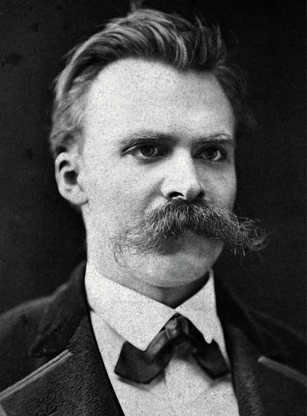The views expressed in our content reflect individual perspectives and do not represent the authoritative views of the Baha'i Faith.
In Part One of this two-part series we looked at the strong arguments of major 17th and 18th century philosophers—now let’s turn to 19th and 20th century thinkers.
Hegel (1770-1831) turned philosophical inquiry around by expounding the concepts of “thesis, antithesis and synthesis.” At heart an idealist, his three theses could be said to be a scientific method for understanding thought and motivation which influenced many including Karl Marx. Similar to Hegel, Auguste Comte (1798-1857), another Frenchman like Descartes, firmly grounded sociology and positivism using the scientific method to investigate reality.
Sociologists today would agree with British philosopher John Stuart Mill (1806-1873), who revered “the greatest happiness to the greatest number of people,” as the ideal. He believed that the greatest good comes from satisfying the needs of the majority. Baha’is would agree, adding protection for the rights of the minority.
The Dane Soren Kierkegaard apprehended theistic existentialism, echoing the deistic philosophers credited with creating “western” logic-from-reality, who all receive praise from the Baha’i writings:
As to deistic philosophers, such as Socrates, Plato and Aristotle, they are indeed worthy of esteem and of the highest praise, for they have rendered distinguished services to mankind. In like manner we regard the materialistic, accomplished, moderate philosophers, who have been of service (to mankind).
We regard knowledge and wisdom as the foundation of the progress of mankind, and extol philosophers who are endowed with broad vision. – Abdu’l-Baha, Tablet to August Forel, p. 7.
With the publication of Walden by the American philosopher Henry David Thoreau (1817-1862), transcendentalism became the rage. Thoreau’s philosophy centered on the inherent goodness of people and nature. Evidenced by the actions of Baha’is like Sarah Farmer in Eliot, Maine at the turn of the century–she founded a great center of learning, Green Acre Baha’i School, and is recognized for raising the first Peace Flag. A different view of human relations to relieve oppression was generated by Marx (1818-1883) and Engels (1820-1895) with publication of the Communist Manifesto in Russia. We still watch its struggles to govern itself.

Friedrich Nietzsche
Friedrich Nietzsche, auspiciously born in 1844 in Germany (d. 1900), pinpointed the effects of secular society and science compared to religious belief with his famous statement, “God is dead…and we have killed him.” It set off a revolution in philosophical thought that promoted the realities of this world over those of the world beyond, touching on nihilism.
This brings us to 20th century philosophers—I’ll name only a few.
Briton Bertrand Russell (1872-1970), logician, mathematician, historian, writer, social critic, political activist, at times a liberal, a socialist, and a pacifist, founded analytic philosophy—which uses scientific methods to solve philosophical problems. After Russell came Ludwig Wittgenstein (1889-1951), considered one of the greatest philosophers of the 20th century. Wittgenstein’s philosophy, or at least a portion of it, centers around the profound idea of finding ways to reach ineffable spiritual insight. He urged everyone to investigate reality independently. Wittgenstein said “Our life has no end in the way in which our visual field has no limits.”
A different yet familiar track to Kant and Kierkegaard was laid by Jean Paul Sartre (1905-1980), who preached the merits of atheistic existentialism—still currently a popular belief, especially these days as a philosophy that emphasizes individual existence, freedom and choice. Sartre held the view that humans define their own meaning in life, and try to make rational decisions despite existing in a (so-called) “irrational universe.”
Rather than being specious arguments for understanding life, humanity owes a great deal to these philosophers for unveiling a crucial component of a person’s makeup, as stated here by Abdu’l-Baha:
The first teaching is that man should investigate reality, for reality is contrary to dogmatic interpretations and imitations of ancestral forms of belief to which all nations and peoples adhere so tenaciously. These blind imitations are contrary to the fundamental basis of the divine religions, for the divine religions in their central and essential teaching are based upon unity, love and peace, whereas these variations and imitations have ever been productive of warfare, sedition and strife. Therefore, all souls should consider it incumbent upon them to investigate reality. Reality is one; and when found, it will unify all mankind. Reality is the love of God. Reality is the knowledge of God. Reality is justice. Reality is the oneness or solidarity of mankind. Reality is international peace. Reality is the knowledge of verities. Reality unifies humanity. – Abdu’l-Baha, The Promulgation of Universal Peace, p. 372.
Thanks to the philosophical beliefs of each of us, and those who spoke and wrote out their thinking against the currents of their times, the human race has been better for it–and continues to progress to fuller understandings of God and the truth of matters.

















Comments
Sign in or create an account
Continue with Facebookor